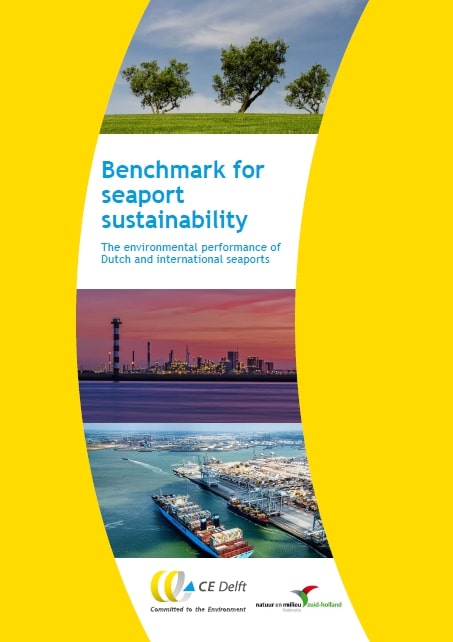Summary (part)
Seaports are nexuses for multiple modes of transport, making them attractive sites for trade and manufacturing. Consequently, seaports facilitate employment and broad economic development. At the same time, seaports have impacts on climate, their environment and the wellbeing of local communities. A sustainable port minimizes these externalities. Monitoring port sustainability is of major importance in light of international climate transition goals and environmental and social responsibility.
This report presents a benchmark for measuring the sustainability performance of seaports. This benchmark was applied to fourteen ports in the Netherlands, other European countries and North America. The data used for the benchmark mainly cover recent years (2015-2018) and include an earlier reference point where possible, usually 2010, to gain insights into longer-term trends. Sustainability performance is assessed in the following areas: climate, renewable energy, air quality, water quality, maritime waste, modal split, community relations and sustainability strategy (vision). Other sustainability topics, for example use of space, safety and nature development have not been included in this benchmark because of the difficulty of developing accurate indicators and datasets.
